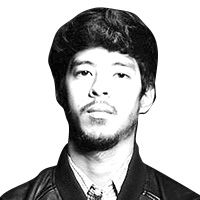Through the looking glass

MANILA, Philippines -Unlike other filmmakers who dwell on the grand notions of death and its actualities, French filmmaker Olivier Assayas is more interested in its ramifications and how the dead is survived by the living. In his most celebrated work, Summer Hours, three siblings struggle in dealing with the passing of their mother, who has left behind a house which has been kept as a shrine of their family’s artistic legacy, particularly that of their great-uncle’s, Paul Berthier. The house is stripped off its heirlooms: Corot paintings, Braques vases, and fragments of a Degas plaster stowed away in a plastic bag, each carved with its own story and its place in the family’s history. The larger patchwork of their troubled reality looms even greater than death but with Assayas’s intimate attention to detail, this process becomes a distinct insight on how we process death and live through its aftermath.
Assayas’s body of work is a shape-shifting oeuvre that ranges from three-hour costume dramas, globe-trotting thrillers, and art house fares. Coming from a family where filmmaking is an everyday matter (he is the son of French director Jacques Remy), Assayas went on to work for Cahiers du Cinema, one of the world’s prestigious film magazines, where he assimilated a diverse film culture from filmmakers such as Ingmar Bergman, Kenneth Anger, Robert Bresson, and even Lino Brocka.
A Discourse Between East And West
 Irma Vep tracks a mad filmmaker's dream to remake Les Vampires, filtered through the eyes of a Hong Kong actress (Maggie Cheung).
Irma Vep tracks a mad filmmaker's dream to remake Les Vampires, filtered through the eyes of a Hong Kong actress (Maggie Cheung). His tenure at Cahiers ignited his long-standing affair with the East. He was responsible for the magazine’s groundbreaking spotlight on Hong Kong cinema, made at a time when Western cinema’s image of Asian cinema is based on swordplay films, kung-fu and samurai epics. He travelled to Hong Kong and Taipei, and played an important part in the emergence of the films of Asian filmmakers like Edward Yang and Hou Hsiao-Hsien.
“Before there was a very vague notion of what Asian Cinema is about,” he says. “So there was no notion that there was filmmaking and film culture anywhere else. For a young writer and would-be filmmaker, discovery of that cinema was a very exciting event because it was like discovering a new country. I’ve always had an inclination towards Chinese culture. I’ve been reading about Chinese painting, poetry. So when Chinese films surfaced I was attracted and I suppose I kind of understood them in ways other French film critics were not aware of.”
His films form an expansive cultural dialogue between the East and the West, more apparent in Irma Vep which stars Maggie Cheung who plays an international star stuck in a French director’s ambition to remake Les Vampires. This insistence of creating a wider cinematic worldview moves Assayas farther from the shadow of the great filmmakers of the French New Wave such as Jean-Luc Goddard, Jacques Rivette, and Erich Rohmer, all of whom also started as critics for Cahiers.
“To me movies are like windows of the world,” Assayas says. “I’ve always been interested in cinema coming from different cultures because they help me understand. They give us a different way of seeing the world, different ways of approaching it, and different ways of understanding human nature.”
Cinematic Responsibilities
 Carlos runs for 330 minutes and was filmed in several cities around the world.
Carlos runs for 330 minutes and was filmed in several cities around the world. Coming from a country that celebrates and supports film culture (France has a government fund dedicated to helping first-time filmmakers create their feature films), Assayas has more than enough wisdom to enlighten the plight of Filipino filmmakers who continue to be weighed down by economic and political limitations.
“When you are involved in an art form as important as cinema you want to connect with your audience. You can’t just be satisfied with not connecting with them and in a certain way. You must go in the direction in making an ambitious Philippine cinema anchored in the cultural history of your country addressed to the audience of your generation. And it’s something that has been destroyed by disastrous economic policies and it’s your duty to rebuild it,” he says.
The Future Of Independent Filmmaking
It’s this essential connection that Assayas values the most. His films may have a certain degree of disparity but they are geared towards a direction that exposes a facet of our lives that have been buried in the kineticism of modern living.
“I feel very privileged that my films are traveling and that they speak some kind of universal language. I always hope that my films were made for an audience beyond my circle French of cinema because that’s the future of independent filmmaking. You can be extremely local but your films have the potential to travel and it’s their way to survive,” he says.
* * *
Tweet me at @geeksturrrr.















